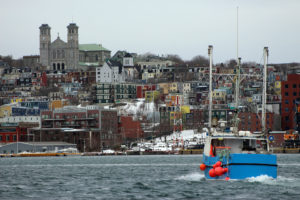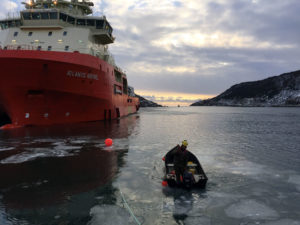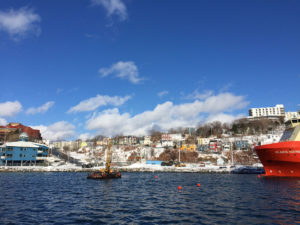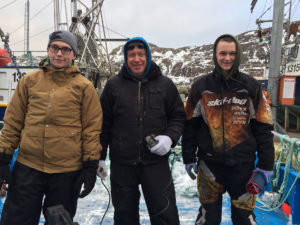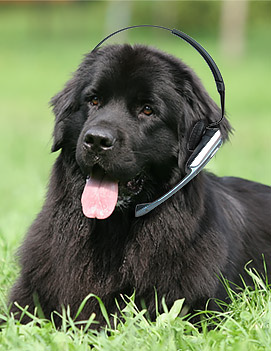Our fishing crew recently hired out as a service boat to assist a drilling crew that were taking soil samples for the new wharves they plan to build in the east end of St. John’s harbour. Basically, we were using our boat’s powerful engine to move the heavy cement blocks used to moor the rig in place on each of its drill sites. To do this we simply “gaffed” the moor line aboard, took a couple of turns on the boat’s “gump” and made two ‘half hitches’ to allow for a safe tow.
Simple stuff, but the wind would “cut you” that morning and on our third move I missed with my gaff and was forced to make a grab into the icy cold waters, catching only enough rope to make the turns but unable to secure even a single knot. As the boat continued to pull I was left trying to hold the moor line in my now frigid hands. As the strain increased my turns began to slip and hard as I tried, my numbing fingers could not maintain a grip; finally letting the rope fly with a quick spin and a mighty slap back on my frozen knuckles.
It hurt so terribly I could have cried and indeed I abandoned my post to dance about the bow with my hands clutched in sheer agony.
Without missing a beat, our captain came to my rescue. Leaping from the cabin he grabbed hold of the line with his big fisherman’s hands and without flinching, hauled the boat tight to the mooring and secured the knots with his bare hands.
I marvelled at his strength, his resilience to the cold and the quick reaction. He ignored all the danger, wasted no time “dressing me down” and simply made things happen in an effortless fashion.
As I looked on miserably I began to despise my own weakness and with tremendous effort, gritted through the pain and went back to my work duties.
When I told this story later that evening, a good friend made an interesting comment about such characters as our captain and the heroic roles Newfoundlanders played in Gallipoli. While few realize Newfoundland’s contribution to this famous World War 1 battle (most of us tend to focus on the heavy losses Newfoundland experienced at the Battle of Beaumont Hamel and associate Gallipoli with the Australian efforts) – it was Newfoundland’s ‘Blue Puttees’ who were chosen to assume the rear guard at Gallipoli during the successful evacuation of the allied forces from the beaches at Dardanelle.
Men like our Captain who could still handle a rifle despite the extreme cold experienced in the trenches, maintain a level head under all circumstances and inspire even the weakest of their soldiers to dig deep within themselves and find the strength to persevere and carry on.

